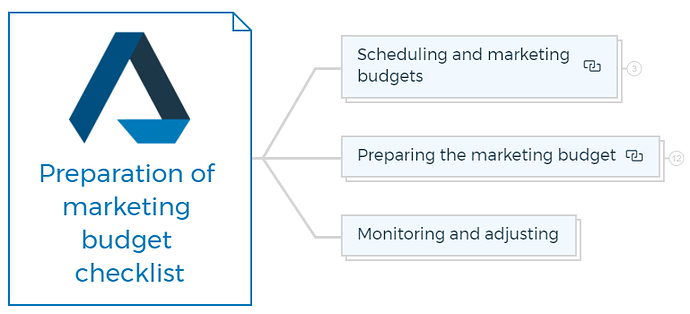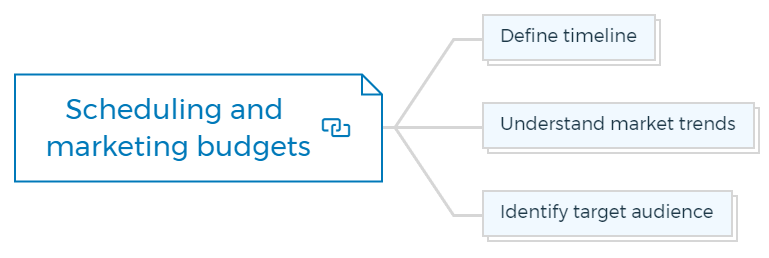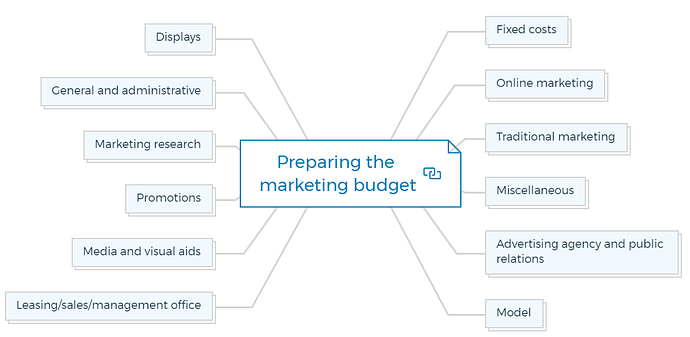1. Scheduling and marketing budgets:
1.1. Define timeline
Establish a clear timeline for your marketing campaign, including key milestones such as property listing, open houses, and target sales completion.
1.2. Understand market trends
Research current market trends to align your marketing efforts with buyer preferences and market conditions.
1.3. Identify target audience
Define your target audience based on demographics, preferences, and buying behavior. This will help tailor your marketing strategies effectively.
You are missing out if you haven’t yet subscribed to our YouTube channel.
2. Preparing the marketing budget
2.1. Fixed costs
- Photography and videography: Allocate funds for professional photos and videos of the property to showcase it in the best possible light.
- Staging and decor: Budget for property staging, interior decoration, and minor repairs to enhance the property’s visual appeal.
- Print materials: Include costs for designing and printing brochures, flyers, and other promotional materials.
- Signage: Allocate funds for real estate signage, both on the property and in surrounding areas.
2.2. Online marketing
- Website development: Budget for creating or updating a dedicated property website with detailed information, photos, and contact details.
- Listing fees: Include expenses for listing the property on real estate websites, including premium placement if available.
- Social media advertising: Allocate funds for targeted advertising on platforms like Facebook, Instagram, and LinkedIn.
- Search engine marketing (SEM): Budget for running Google Ads campaigns to increase the property’s online visibility.
- Email marketing: Set aside funds for email campaigns targeting your contact list and potential buyers.
2.3. Traditional marketing
- Print advertising: If you’re using newspapers or magazines, allocate funds for print ads.
- Direct mail: Budget for sending out postcards or flyers to a targeted list of potential buyers.
- Networking events: Include expenses related to attending real estate fairs, local events, and networking opportunities.
2.4. Miscellaneous
- Professional services: Allocate a portion of the budget for legal and accounting fees, as well as consultation with marketing professionals.
- Contingency fund: Set aside a small percentage of the budget for unexpected expenses or opportunities that may arise during the campaign.
2.5. Advertising agency and public relations
- Agency fees: Budget for hiring an advertising agency to create and execute marketing campaigns, including fees for strategy development, creative design, and media placement.
- Public relations: Allocate funds for PR efforts, including press releases, media outreach, and reputation management.
2.6. Model
- Scale model or virtual tour: If creating a scale model or virtual tour of the property, allocate funds for its production.
2.7. Leasing/sales/management office
- Office setup: Budget for setting up and decorating a dedicated office space for leasing, sales, or property management purposes.
- Furniture and equipment: Include expenses for office furniture, computers, phones, and other equipment required for the office.
2.8. Media and visual aids
- Audio-visual materials: Allocate funds for creating multimedia presentations, videos, and slideshows to showcase the property.
- Media production: Budget for professional photography, videography, and drone footage to capture the property’s unique features.
2.9. Promotions
- Event costs: Include expenses for hosting events such as open houses, launch parties, or property tours.
- Giveaways and swag: If offering promotional items to potential buyers, allocate funds for their design and production.
2.10. Marketing research
- Market analysis: Budget for conducting market research to gather insights into current trends, competitive analysis, and buyer preferences.
- Survey costs: Allocate funds for conducting surveys or focus groups to gather direct feedback from potential buyers.
2.11. General and administrative
- Staff salaries: Include personnel costs related to marketing staff, coordinators, and administrative support.
- Office expenses: Budget for general office supplies, utilities, and other administrative costs.
- Training and development: Allocate funds for training marketing and sales teams on the property’s features and value propositions.
2.12. Displays
- Sales center displays: If setting up a sales center, allocate funds for interactive displays, touchscreen kiosks, and informative panels.
- Outdoor signage: Include expenses for large outdoor displays or billboards to attract attention to the property.
3. Monitoring and adjusting:
- Regular review: Schedule periodic reviews of your marketing budget to ensure that expenses align with the campaign’s progress.
- Performance metrics: Define key performance indicators (KPIs) such as website traffic, lead generation, and engagement to measure the effectiveness of your marketing strategies.
- Flexibility: Be prepared to adjust your budget allocation based on the performance of different marketing channels. Allocate more resources to those that yield better results.
Feedback mechanism: Establish a feedback loop with your sales team or agents to gather insights on the effectiveness of marketing efforts.




